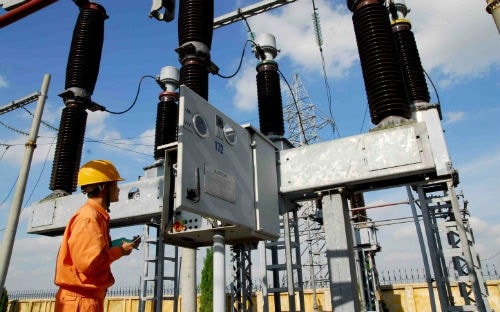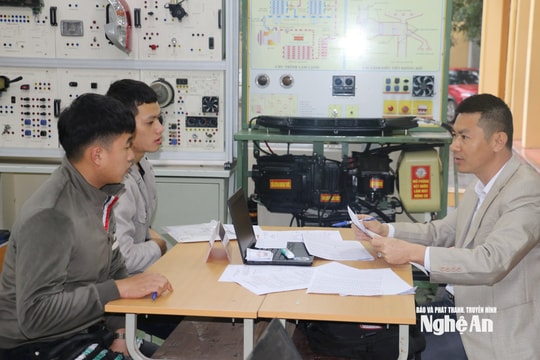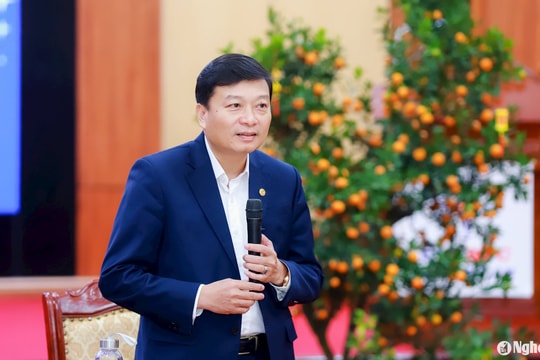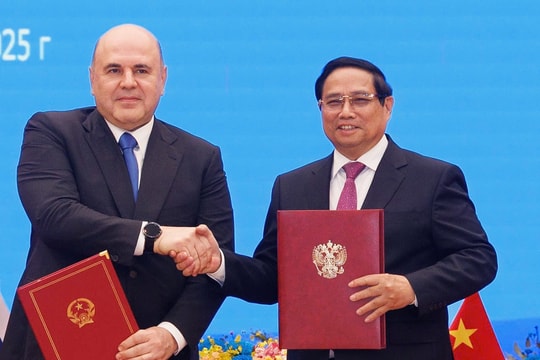Electricity industry unexpectedly reports loss of nearly 930 billion VND
Vietnam Electricity Group (EVN) has just announced its consolidated financial report for the first half of 2016. Accordingly, EVN achieved nearly 131,000 billion VND in revenue, an increase of 17%, equivalent to more than 19,000 billion VND compared to the same period. However, financial expenses increased sharply by more than 15,500 billion VND, causing EVN to unexpectedly report a loss.
Specifically, in the first half of 2016, EVN lost 716 billion VND, the parent company's loss was nearly 930 billion VND, while in the same period last year, the group still had a consolidated profit of 1,271 billion VND.
 |
| EVN unexpectedly reported a loss of nearly 1 trillion in 6 months. Illustration photo |
As of June 30, 2016, EVN's total assets and consolidated equity reached VND663,000 billion and VND187,700 billion, respectively. EVN's liabilities increased to VND475,000 billion, of which financial debt amounted to VND395,000 billion.
Large debt makes interest a burden for EVN. In the first 6 months of the year, the group had to spend a total of 6,900 billion VND to pay interest. In 2015, EVN also had to spend more than 12,000 billion VND to pay interest.
Speaking to the press, Mr. Dinh Quang Tri, Deputy General Director of EVN, said that in the first 6 months, EVN's total operating profit was 5,814 billion VND.
However, due to the large foreign currency debt structure, especially ODA capital in Japanese Yen, the group suffered an exchange rate loss of VND 6,371 billion. According to the exchange rate accounting standards in financial statements, the group fell into loss.
"The reason for the after-tax loss in the Group's consolidated financial statements for the first six months of the year is due to exchange rate differences. Specifically, the Japanese Yen exchange rate increased sharply. According to Circular No. 200/2014 of the Ministry of Finance guiding the enterprise accounting regime, enterprises must evaluate the exchange rate differences of foreign currency-based debt items at the time of preparing the financial statements," said Mr. Tri.
Currently, EVN is the state-owned corporation with the largest debt. EVN's loans are mostly government-guaranteed loans. According to a report submitted by the Ministry of Finance to the Government, in 2015, EVN's parent company borrowed an additional 2 billion USD, raising the government's debt guarantee for EVN to 9.7 billion USD.
By the end of 2015, government-guaranteed debt reached about 26 billion USD, of which EVN accounted for 37.3%. Therefore, the Ministry of Finance emphasized that EVN and power companies must deal with the annual exchange rate difference loss problem because the revenue from electricity sales comes from domestic currency while there are many large loans in foreign currency.
Recently, the draft regulation of the Ministry of Industry and Trade has given EVN the right to increase electricity prices by up to 20% per year, and the time to adjust electricity prices has been reduced from 6 months to 3 months.
Recently, the Government issued Decree 147, effective from 2017, adjusting the payment level for forest environmental services for hydropower and clean water production facilities.
According to the amendment, the payment level for forest environmental services for hydropower production facilities increased from 20 VND/kwh to 36 VND/kwh and for clean water production facilities from 40 VND/m3 to 52 VND/m3.
The payment rate for forest environmental services applied to hydropower plants is 36 VND/kwh of commercial electricity. The electricity output used to calculate the service payment is the electricity output of hydropower plants sold to electricity buyers according to the power purchase agreement.
According to a representative of Vietnam Electricity Group (EVN), the cost of electricity production has been constantly fluctuating recently, and at some points, due to difficulties in hydropower, units have had to run on diesel to generate electricity.
According to Bach Duong/vneconomy

.jpg)





